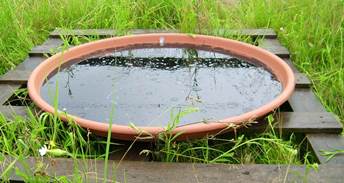
Keeping the bugs at bay poses a challenge for organic farms that shun pesticides. But help is on the way: a small Turkish plastics maker has developed an environmentally friendly bug trap, under an EU research project it learned about from the Enterprise Europe Network.
Blood-sucking horse-flies can wreak havoc on farms, inflicting painful bites on cows, horses and other animals. Besides being a nuisance, the insects disturb animals' natural grazing patterns and cause severe daily blood loss, leading to reduced meat and milk output. They can also pose dangers to humans.
TabaNOid (Protective system against tabanid flies for farms), an EU-funded project, was led by MFKK, a private research institute in Budapest. Looking for research collaborators, it got in touch with Enterprise Europe Network project manager Judit Félhelyesné Zubonyai, in the Chamber of Commerce and Industry for Győr-Moson-Sopron County in north-western Hungary. She undertook a broad-ranging partner search for MFKK.
With around 600 partner organisations in more than 50 countries, the Network is uniquely qualified to help entrepreneurs plug into EU funding and find research partners.
MFKK's request caught the eye of Serdal Temel, Network project manager at the European Business and Innovation Center at EGE University in Izmir, Turkey, who encouraged a client to apply despite having no previous EU research experience. The client, Lenis Global, makes plastic parts for household appliances, medicine tubes and pipe fittings.
"We visited our client three times to assess its needs," says Temel. "When we received a partner search from Hungary, we informed Lenis Global and helped it to prepare a successful application." He adds that the client was experienced mainly in local and national R&D projects. So he and his colleagues also arranged an information-sharing meeting between Lenis Global and another client that is more familiar with the steps and benefits of EU projects.
The TabaNOid horse-fly trap is a large liquid-filled dish and is made of biodegradable plastic resistant to severe weather conditions. This passive device attracts horse-flies from any open-air field with highly polarised light, calling on a recent discovery about the vision of these insects.
The new trap eliminates horse-flies without having any major effects on nearby ecosystems, as it attracts only a very small number of other beneficial flying insects. Successfully field tested during the project, it can be placed in livestock fields or protect people in recreational areas such as campsites or swimming pools.
Aided by the Network, Lens Global has embarked on several other international research projects. According to its CEO Hatice Kocalp Yilmaz, "The Network opened our eyes to the world of opportunities for small companies."
"MFKK is still cooperating from time to time with Ege University in Turkey and with a spinoff company of this university called Inovege," says Félhelyesné Zubonyai. She adds that their collaboration continued under the EU R&D project Dira-Green, in the field of powder metallurgy, with MFKK as coordinator and Inovege active as research and development partner.